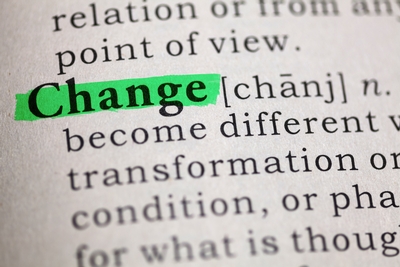How discombobulating words can be! You feel certain about what a word means, but then are challenged by another person’s interpretation. Sometimes the discussion, or even argument, is rooted in changing social situations. For example, what does poverty mean? What did it mean 200 years ago? A dispute about words may also be philosophical: there is no such thing as an accident; there is no such thing as truth.
Language is changing all the time, keeping word people, such as editors, hopping. Would you accept criteria, alumni or phenomena as singular nouns? Are these errors, or do they need to be tolerated or even celebrated as cool new usages? Bacteria is definitely further on the way to general acceptance as a singular noun. Are all such nouns with a Greek or Latin origin headed for the same fate as they come into common use?
People may decide that a given word or expression has a special meaning, distinct from its commonly accepted one. A newspaper article I saved from 2007 quotes a Canadian interior designer who refused to accept the way the word retro was being used: “Everyone says ‘retro’ as if it means ‘recycled,’ but really, retro is taking what has come before and reinterpreting it. I hate the word ‘retro.’ ” However, the fact is that retro means whatever the speech community as a whole has decided it means in a given period.
Arguments about meaning can be serious. For example, some people concerned with workplace safety hate the word accident. The idea is that most unintentional injuries are predictable and preventable; an accident is thought to always mean something that is not preventable (an “act of God”).
Some people insist that only the original or literal meaning of a word is correct. A friend of mine once insisted that the word decimate was incorrectly used unless it referred to the destruction of one-tenth of the whole. If that were true, the word would be virtually unusable, except when referencing the original Roman military context; I cannot imagine another real-world context in which every tenth one is killed.
We could say that almost all of language is metaphor. Most words, aside from many concrete nouns (e.g., scriptorium, doorstop, bedspread, rotini), have more than one meaning, and even single-sense words can be used figuratively. However, every word starts out with a single meaning. This is true of even a venerable word like set, which goes back to Old English (before the 12th century). Today it is famous for being the longest entry in any dictionary because of its many meanings. In the print version of the massive Oxford English Dictionary, Second Edition, its entry occupies approximately 25 pages. All of this riot of meaning developed over the centuries from the word’s basic meaning, “to cause to sit.” No one today would question the validity of its use in “to set something on fire,” “to set a clock” or “to set out on a journey.” Yet each of these meanings was once new and was perhaps resisted or even condemned as wrong.
Communication demands agreement on meaning over time — a constant conundrum for anyone working with words, but often a delightful and fascinating problem. Just ask any poet.
Are there any contemporary word usages that inspire or peeve you?
~~~
Previous post from Victoria Neufeldt: Undue Care and Attention.
The Editors’ Weekly is the official blog of Editors Canada. Contact us.
Discover more from The Editors' Weekly
Subscribe to get the latest posts sent to your email.

